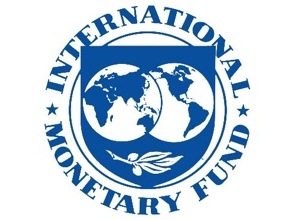Like nearly every other organization, economist and investor, the International Monetary Fund voiced concern about Europe in its new analysis. According to its Global Financial Stability Report: Source: International Monetary Fund
Source: International Monetary Fund
Risks to global financial stability have increased and financial markets have been volatile as European policymakers grapple with the ongoing crisis.
The organization did not offer much in the way of helpful solutions, but it did frame the problem better than it has been done in the past.
Faltering market confidence has led to capital flight from countries on the ‘periphery’ to the core of the euro area. This has meant higher borrowing costs and a growing wedge between the economic and financial ‘haves’ and ‘have-nots’.
Capital markets investors and bankers have known about these problems for some time, but the IMF has upped the ante with a public statement from a major organization about the extent of the problem and its immediate danger. The banking system in Europe will not be badly damaged in the future — it is already badly damaged.
Unless additional, decisive policy measures are taken urgently, the latest report says that mounting pressure on banks in Europe could result in asset shrinkage by as much as $2.8 trillion to $4.5 trillion through the end of 2013, with the largest burden of credit supply contraction falling on the euro area periphery.
This is the most shocking of the IMF’s new analysis. The size of the asset problem is beyond stunning. And it is another example of how badly off the weakest nations in Europe are financially and how it has become virtually impossible for them to recover either economically or in terms of their bank systems. Funds of the amounts currently contemplated to be injected into troubled sovereigns will not be enough to relieve the trouble with the financial firms.
The solution to most of these problems, the IMF report authors say, is:
To restore confidence, policymakers in the euro area need to swiftly complete the work they’ve begun, including:
• Reduction of government debts and deficits in a way that supports growth;
• Implementation of structural reforms to reduce external imbalances and promote growth; and
• Clean-up of the banking sector, including recapitalizing or restructuring viable banks and resolving nonviable ones.
However, these solutions will cost hundreds of billions of dollars in sovereign aid, and perhaps more in bank aid. The battle over where that money will come from is only in its middle stages, and it is unclear whether the entire amount necessary can be raised at all.
Policy and policy recommendations, no matter how well they are framed, articulated or analyzed, will not remedy the issues.
Douglas A. McIntyre
Sponsored: Find a Qualified Financial Advisor
Finding a qualified financial advisor doesn’t have to be hard. SmartAsset’s free tool matches you with up to 3 fiduciary financial advisors in your area in 5 minutes. Each advisor has been vetted by SmartAsset and is held to a fiduciary standard to act in your best interests. If you’re ready to be matched with local advisors that can help you achieve your financial goals, get started now.
Thank you for reading! Have some feedback for us?
Contact the 24/7 Wall St. editorial team.



